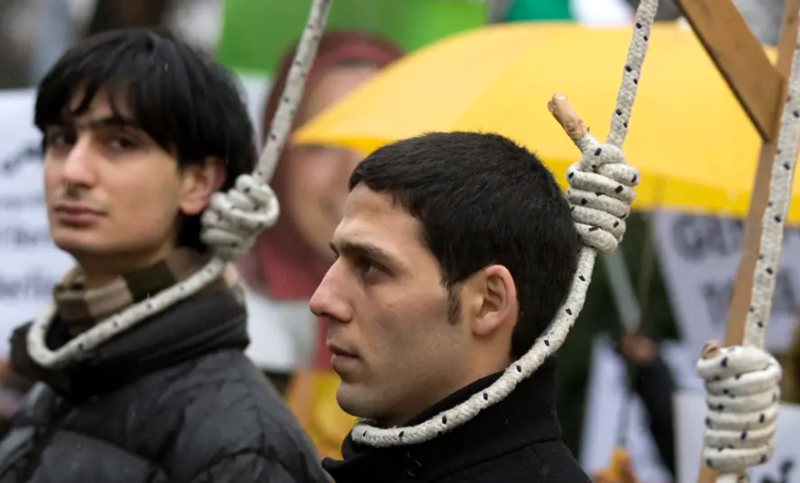
By Saeed
In a shocking case of Human Rights violation, Iranian political prisoner Ameneh Zaheri Sari, a graduate student in accounting, is being held in Ahvaz Sepidar Prison. She is reportedly being denied medical care.
The prison authorities have allegedly prevented her from receiving medical treatment in a hospital outside the prison, and the prison hospital is unable to provide adequate care for this young woman.
Ameneh has developed lumps and swellings in several parts of her body, the condition is unfamiliar to the doctors in the prison clinic. She requested a transfer to a hospital outside the prison for further investigations and proper diagnosis. Prison authorities denied her request. According to the prison medics, she needs immediate medical care and treatment that they cannot provide, but prison authorities have neglected to heed their warnings.
Ms. Zaheri’s family have gathered the 300 million tomans (over $70,000) to pay for her bail bond, to facilitate her transfer to an outside hospital, but the l prison officials at the Spidar Prison are rejecting the bail bond — forcing this young woman to suffer.
Her father, Ameneh Zaheri Sari, and her brother were among hundreds of people arrested in November 2018 in Khuzestan province who were involved in a protest that turned into deadly clash, because her family and friends are extremely concerned and say her health is deteriorating every day.
Philip Luther, Amnesty International Research director for the Middle East and South Africa is deeply concerned. “The scale of arrests in recent weeks is deeply alarming,” he said. “The timing suggests that the Iranian authorities are using the attack in Ahvaz as an excuse to strike against members of the Ahvazi Arab ethnic minority, including civil society and political activists, in order to crush dissent in Khuzestan province.”
Political and minority rights activists are among those arrested. As well, activists from a number of towns and villages including Ahwaz, Hamidiyeh, Khorramshahr, and Shush have been arrested recently.
Another case of abuse of rights is occurring at Mahabad prison, northern Iran, where juvenile offender Danial Aeinulabedin has been sentenced to death for a crime he allegedly committed when he was 17.
A close relative of Danial has cited an unofficial source telling the family that Danial will be executed after the end of Ramadan, according to Iran Human Rights Organization. Ramadan will end on June 4th.
Danial and three others have been charged with the murder of a man on Sept. 22, 2017 who is identified as Sadegh Barmaki. Iran’s Supreme Court has upheld the execution despite extensive flaws in the case. His family insists that Danial is innocent and he has not committed any crime. Additionally, Danial was 17 at the time of the alleged murder. Amnesty International has time and again called on Iranian regime authorities to adhere to their obligations under the international law of not executing juveniles. It’s reported that in 2018, Iran executed seven people for crimes they allegedly committed as children.
Iran is one of only five countries that execute juveniles.
Iran’s penal code was amended in 2013 to prohibit the execution of child offenders. Article 91 of the amended penal code allows judges to not issue a death sentence against someone who was too young to comprehend the nature and consequences of the crime at the time.
However, the Iranian courts continued to execute children, even after these amendments became law.







